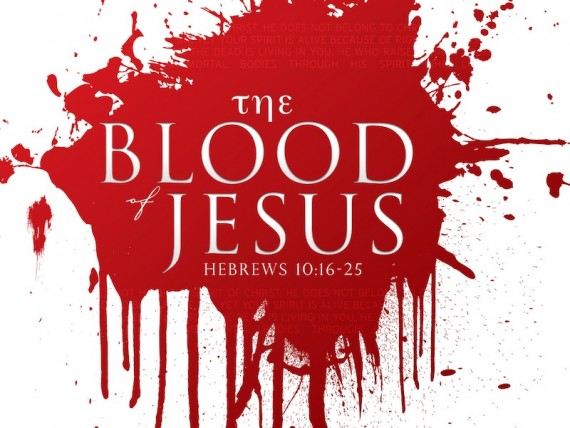(#AmazonAdLink) 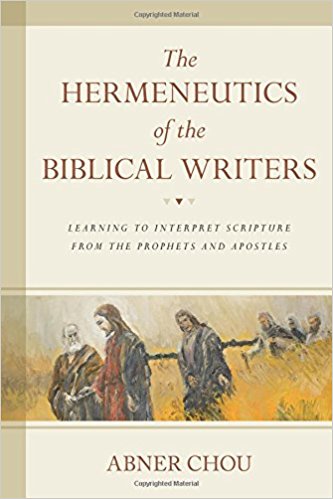 When I was in Bible College, I was taught that our modern practices of hermeneutics differ from those used by the biblical prophets and apostles themselves. I was told in class that while the biblical authors used allegory and typology (cf. Gal 4:24-25), this is not something we are allowed to practice today as good students of Scripture. The reason, I was told, was because they were inspired and we are not.
When I was in Bible College, I was taught that our modern practices of hermeneutics differ from those used by the biblical prophets and apostles themselves. I was told in class that while the biblical authors used allegory and typology (cf. Gal 4:24-25), this is not something we are allowed to practice today as good students of Scripture. The reason, I was told, was because they were inspired and we are not.
But it turns out that not even the biblical authors practiced allegory and typology. Instead, Abner Chou points out in his book, (#AmazonAdLink) The Hermeneutics of the Biblical Writers, that the hermeneutical methods practiced by most of the conservative evangelical scholars of today appears to be the same hermeneutical methods practiced by the biblical authors, as well as Jesus Himself.
For them, as for us, contextual issues about authorial intent were paramount, which requires a knowledge of historical, grammatical, cultural, and theological contexts. Chou shows that these sort of “modern” hermeneutical rules are not modern at all, but have been followed and practiced since Moses sat down to write the words of God for the people of Israel to read and understand.
If you want to understand the Bible better, and also all the prophets and apostles, including Jesus Himself, read and understood Scripture, I highly recommend Chou’s book.
I do have a few caveats, of course. For example, I take issue with his criticism of a Christocentric reading of Scripture (p. 133), and also with his take on trajectory hermeneutics (p. 226). But one can disagree with Chou on these sorts of issues and still accept the broader idea that the hermeneutical principles we practice today are not modern inventions, but have been practiced, taught, and followed by all the writers of Scripture since the first words of Scripture were written.
If you want to read the book, you can (#AmazonAdLink) get it on Amazon.




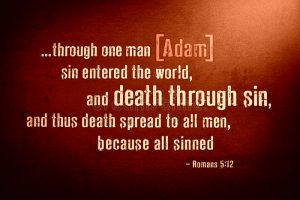 But is this what Paul has in mind?
But is this what Paul has in mind? But a careful study of what Genesis 2–7 teaches about death and dying leads us in a very different direction.
But a careful study of what Genesis 2–7 teaches about death and dying leads us in a very different direction. The first death in the Bible is when Cain murders his brother Abel as a result of jealous rivalry (Genesis 4:8). Many Christians believe that the first death in the Bible occurs when God sacrificed a sheep in Genesis 3:21 or when Abel made a similar sacrifice in Genesis 4:4.
The first death in the Bible is when Cain murders his brother Abel as a result of jealous rivalry (Genesis 4:8). Many Christians believe that the first death in the Bible occurs when God sacrificed a sheep in Genesis 3:21 or when Abel made a similar sacrifice in Genesis 4:4.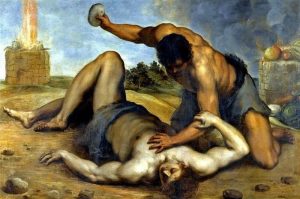 But beyond this, the source of the violent murder is Cain’s desire to have what Abel has, and the rivalry he engages in to obtain it (cf. Genesis 4:5-7). Furthermore, Cain then goes off to found a city (Genesis 4:17), which shows that murder and violence is at the foundation of all human civilization.
But beyond this, the source of the violent murder is Cain’s desire to have what Abel has, and the rivalry he engages in to obtain it (cf. Genesis 4:5-7). Furthermore, Cain then goes off to found a city (Genesis 4:17), which shows that murder and violence is at the foundation of all human civilization. In Genesis 6 we see that this seventy sevenfold vengeance has overtaken the whole earth so that now, everyone is only evil all the time and violence has covered the whole earth (Genesis 6:5, 11). The one thing that God did not want to happen has happened. In Genesis 6 all humans are engaged in violence against all other humans. The earth is suffering from an all-consuming contagion of violence.
In Genesis 6 we see that this seventy sevenfold vengeance has overtaken the whole earth so that now, everyone is only evil all the time and violence has covered the whole earth (Genesis 6:5, 11). The one thing that God did not want to happen has happened. In Genesis 6 all humans are engaged in violence against all other humans. The earth is suffering from an all-consuming contagion of violence. Paul goes on to contrast this with the righteousness that is in Jesus Christ (Romans 5:16-18). Therefore, as with many other words in this dictionary, the concept of death in Romans in closely connected with other key words that must also be understood in order to grasp Paul’s overall argument.
Paul goes on to contrast this with the righteousness that is in Jesus Christ (Romans 5:16-18). Therefore, as with many other words in this dictionary, the concept of death in Romans in closely connected with other key words that must also be understood in order to grasp Paul’s overall argument.


 There are five crowns mentioned in Scripture. They are the Everlasting Crown (1 Cor 9:25), the Crown for the One who Wins Souls (Php 4:1; 1 Thess 2:19), the Crown of Righteousness (2 Tim 4:8), the Crown of Glory (1 Pet 5:4), and the Crown of Life (Jas 1:12; Rev 2:10).
There are five crowns mentioned in Scripture. They are the Everlasting Crown (1 Cor 9:25), the Crown for the One who Wins Souls (Php 4:1; 1 Thess 2:19), the Crown of Righteousness (2 Tim 4:8), the Crown of Glory (1 Pet 5:4), and the Crown of Life (Jas 1:12; Rev 2:10). Eternal life is a free gift to everyone and anyone who believes in Jesus for it. You do not have to work your way to eternal life. Eternal life cannot be earned or kept by good works.
Eternal life is a free gift to everyone and anyone who believes in Jesus for it. You do not have to work your way to eternal life. Eternal life cannot be earned or kept by good works.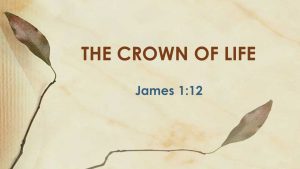 The crown of life that James mentions here is often confused with eternal life.
The crown of life that James mentions here is often confused with eternal life.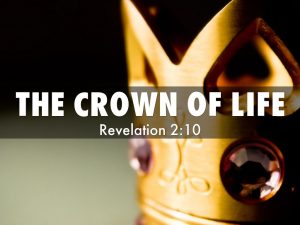 The crown mentioned in Revelation 2:10 is also the crown of life mentioned in James 1:12. In both cases, the crown of life is a special honor, reward, or recognition given by Jesus to those who stand up against the temptation and trials of the devil.
The crown mentioned in Revelation 2:10 is also the crown of life mentioned in James 1:12. In both cases, the crown of life is a special honor, reward, or recognition given by Jesus to those who stand up against the temptation and trials of the devil.

 When most Christians read this, they imagine the church as this impregnable fortress, with huge white granite walls, behind which all the people of God huddle together in safety as the forces of evil attack from outside.
When most Christians read this, they imagine the church as this impregnable fortress, with huge white granite walls, behind which all the people of God huddle together in safety as the forces of evil attack from outside. It is not the church that is attempting to hide behind gleaming walls as against an invading army. No, it is Satan and his minions who are huddled behind their blackened walls, hoping that the gates will hold.
It is not the church that is attempting to hide behind gleaming walls as against an invading army. No, it is Satan and his minions who are huddled behind their blackened walls, hoping that the gates will hold. The terrible, tragic reality is that while the church gets so caught up in the debate about who goes to hell, and how long they will be there, and whether or not hell is a place of eternal suffering or temporary purification, we are ignoring the people living in hell on earth all around us.
The terrible, tragic reality is that while the church gets so caught up in the debate about who goes to hell, and how long they will be there, and whether or not hell is a place of eternal suffering or temporary purification, we are ignoring the people living in hell on earth all around us.

 The bottom line truth we will learn is that a public confession of Jesus is not required to receive (or prove that we have) eternal life. Not even Romans 10:9-10 teaches this idea.
The bottom line truth we will learn is that a public confession of Jesus is not required to receive (or prove that we have) eternal life. Not even Romans 10:9-10 teaches this idea.

 Many use Romans 10:9-10 to teach that if a person is going to truly be a Christian, they are required to make a public confession of faith in front of other people.
Many use Romans 10:9-10 to teach that if a person is going to truly be a Christian, they are required to make a public confession of faith in front of other people.


 So what did the Apostle John mean when he wrote 1 John 1:9? To understand this verse, we need to understand three things. We need to understand the meaning of the word “confess,” the meaning of the word “forgive” and the overall message and theme of 1 John.
So what did the Apostle John mean when he wrote 1 John 1:9? To understand this verse, we need to understand three things. We need to understand the meaning of the word “confess,” the meaning of the word “forgive” and the overall message and theme of 1 John.
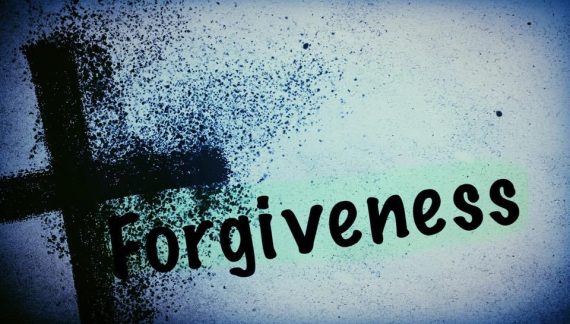
 You can have a relationship with somebody, but not fellowship. For example, if you had a fight with one of your parents several years back, you are still related to them and are still part of the family, but you might not call them on the phone or get together for holidays. You are related, but do not have fellowship. You are not abiding or remaining with them in an ongoing friendship.
You can have a relationship with somebody, but not fellowship. For example, if you had a fight with one of your parents several years back, you are still related to them and are still part of the family, but you might not call them on the phone or get together for holidays. You are related, but do not have fellowship. You are not abiding or remaining with them in an ongoing friendship. The first step in healing this brokenness is by confessing our sin and agreeing with God that what we did was wrong.
The first step in healing this brokenness is by confessing our sin and agreeing with God that what we did was wrong.
 The word
The word 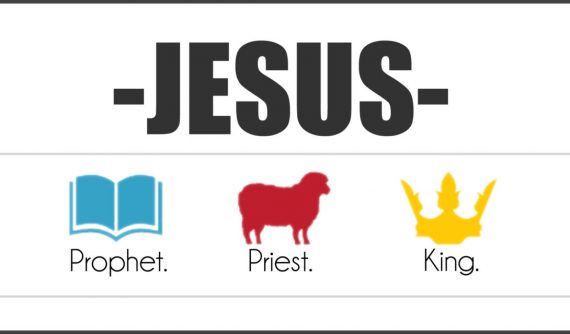

 So when we read about Jesus Christ in the Bible, or when we read about how Christians are in Christ, it is important to not over-spiritualize word Christ, but instead to recognize that a statement is being bad about the Lordship and Mastery of Jesus over all things.
So when we read about Jesus Christ in the Bible, or when we read about how Christians are in Christ, it is important to not over-spiritualize word Christ, but instead to recognize that a statement is being bad about the Lordship and Mastery of Jesus over all things. However, John did not write this Gospel account only for unbelievers. While he emphasizes over and over how a person can believe in Jesus for eternal life, John also knows that God wants much more for us than to just believe in Jesus.
However, John did not write this Gospel account only for unbelievers. While he emphasizes over and over how a person can believe in Jesus for eternal life, John also knows that God wants much more for us than to just believe in Jesus.
 The Book of Life is a translation from the Greek phrase tō biblō tēs zōēs. The phrase “the Book of Life” or “the Book of the Living” are fine translations for this phrase.
The Book of Life is a translation from the Greek phrase tō biblō tēs zōēs. The phrase “the Book of Life” or “the Book of the Living” are fine translations for this phrase. Whichever approach you choose, it is important to note that while Scripture does teach about getting blotted out of the Book of Life, this does not ever refer to losing eternal life. While a person might get their “penciled” name erased from the Book of Life when they die, once a person’s name is written in permanent ink, it cannot ever be blotted out.
Whichever approach you choose, it is important to note that while Scripture does teach about getting blotted out of the Book of Life, this does not ever refer to losing eternal life. While a person might get their “penciled” name erased from the Book of Life when they die, once a person’s name is written in permanent ink, it cannot ever be blotted out. He says he will come like a thief in the night (Rev 3:3), but this does not mean that He will come to kill them or take away their eternal life. Jesus says that unfaithful servants will not be honored the same way that faithful servants will be, but He is not saying that unfaithful servants will be cast out, killed, or have eternal life removed from them.
He says he will come like a thief in the night (Rev 3:3), but this does not mean that He will come to kill them or take away their eternal life. Jesus says that unfaithful servants will not be honored the same way that faithful servants will be, but He is not saying that unfaithful servants will be cast out, killed, or have eternal life removed from them.
 1 John 1:7-10 does get discussed in various ways through my online course “
1 John 1:7-10 does get discussed in various ways through my online course “ And while it is true that they might be guilty of some of the things we accuse them of, the human tendency is to amplify the sinful behavior of others so that we can turn them into monsters, and dehumanize them, so that we can condemn them, or send them into exile, or even kill them in the name of God.
And while it is true that they might be guilty of some of the things we accuse them of, the human tendency is to amplify the sinful behavior of others so that we can turn them into monsters, and dehumanize them, so that we can condemn them, or send them into exile, or even kill them in the name of God. There are
There are  John is primarily interested in make sure that his readers recognize how they have been involved in the violent, bloody, accusatory, scapegoating practices that run this world, and turn from such behaviors to walk in the light of God’s love.
John is primarily interested in make sure that his readers recognize how they have been involved in the violent, bloody, accusatory, scapegoating practices that run this world, and turn from such behaviors to walk in the light of God’s love.

 But if God doesn’t demand blood, then how does God forgive? Doesn’t Hebrews 9:22 teach that God needs blood in order to forgive us? No, it does not. Let us read carefully what Hebrews 9:22 says in context.
But if God doesn’t demand blood, then how does God forgive? Doesn’t Hebrews 9:22 teach that God needs blood in order to forgive us? No, it does not. Let us read carefully what Hebrews 9:22 says in context.

